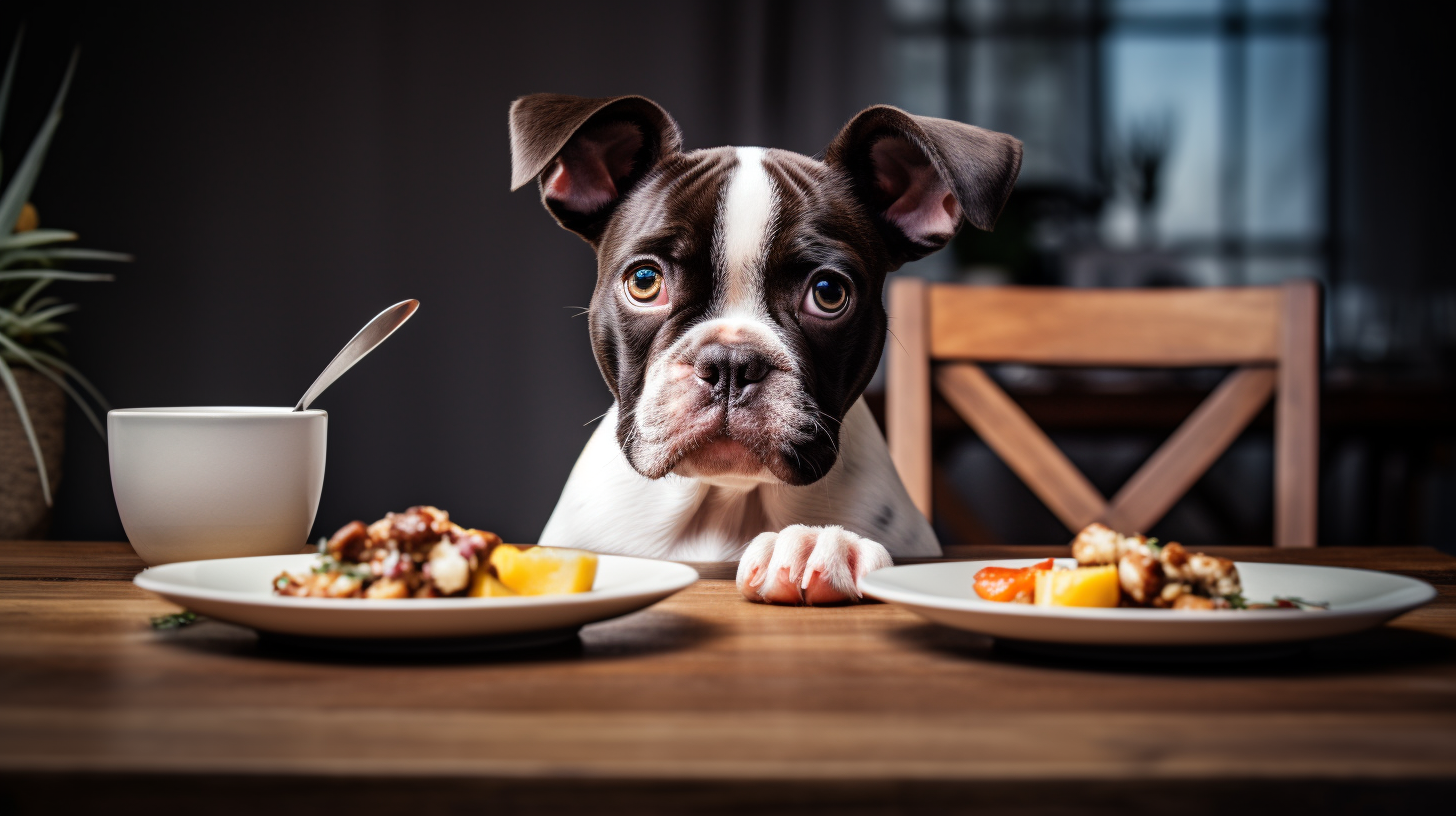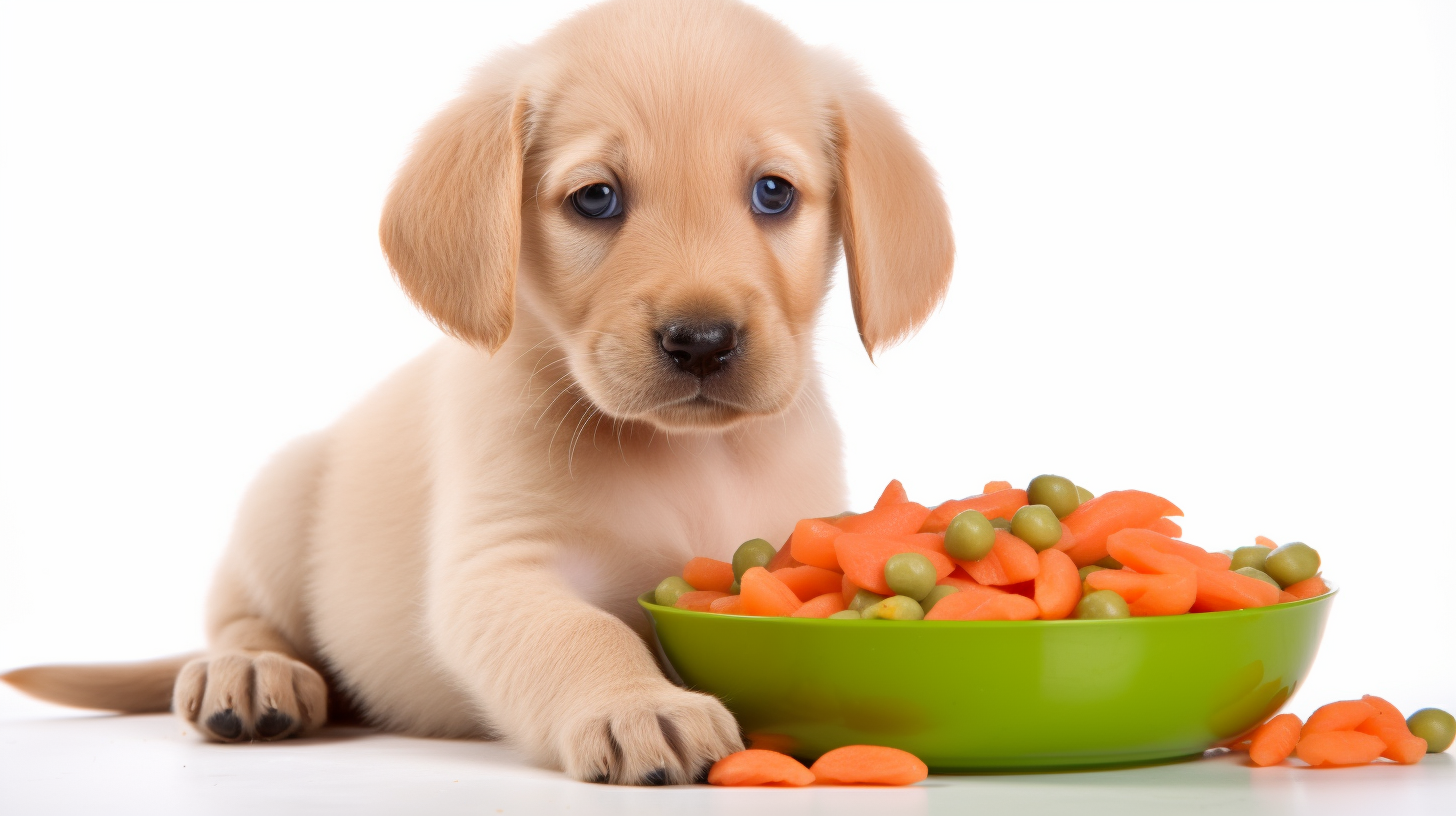
Puppies & Table Scraps: Identifying Harmful Foods
The bond between humans and dogs is undeniable, spanning thousands of years and countless shared experiences. One of the ways we often express our affection towards our furry friends is by sharing our food. However, not all human foods are safe for puppies, and some can even be toxic or life-threatening. It’s essential for pet owners to be aware of which foods are harmful to puppies, as well as the safe table scraps they can share with their beloved pets.
Human Foods Harmful to Puppies
Common Foods to Avoid
To ensure your puppy’s safety, it’s crucial to know which human foods are toxic or unhealthy for them. Here’s a table of some common toxic foods and their effects on puppies:
| Toxic Food | Effects on Puppies |
|---|---|
| Chocolate | Vomiting, diarrhea, increased heart rate, seizures, death |
| Grapes & Raisins | Kidney failure, vomiting, diarrhea |
| Onions & Garlic | Anemia, vomiting, diarrhea, abdominal pain, increased heart rate |
| Xylitol (artificial sweetener) | Rapid insulin release, hypoglycemia, seizures, liver failure, death |
| Macadamia Nuts | Weakness, vomiting, tremors, hyperthermia |
Remember to avoid giving these foods to your puppy and store them out of their reach.
Less Known Foods to Watch Out For
Aside from the commonly known toxic foods, there are other lesser-known foods that can be harmful to puppies:
- Avocado: Contains persin, which can cause vomiting and diarrhea in dogs.
- Caffeine: Can cause restlessness, rapid breathing, heart palpitations, and seizures.
- Alcohol: Can lead to vomiting, diarrhea, decreased coordination, central nervous system depression, and even death.
Food Allergies and Sensitivities in Puppies
Puppies, like humans, can also have food allergies or sensitivities. Common allergens include beef, dairy, chicken, and wheat. If your puppy exhibits symptoms like itching, skin rashes, or gastrointestinal issues after consuming a specific food, consult your veterinarian to determine if it’s an allergy or sensitivity.
Safe Table Scraps for Your Puppy

Nutritious Foods Your Puppy Will Love
There are several human foods that can be safely shared with puppies, including:
- Lean meats (cooked and without bones or seasoning)
- Carrots
- Green beans
- Apples (no seeds)
- Peanut butter (without xylitol)
These foods can provide additional nutrients to your puppy’s diet, but should always be offered in moderation.
Serving Sizes and Preparation Guidelines
When giving table scraps to your puppy, keep the portion size small and ensure that the food is properly prepared. For example, remove any seeds, stems, or pits from fruits and vegetables, and avoid adding seasoning or spices that could be harmful. Make sure to cut the food into small, bite-sized pieces to prevent choking.
Balancing Your Puppy’s Diet with Table Scraps
While it’s okay to occasionally offer your puppy table scraps, it’s essential to maintain a balanced diet by primarily feeding them high-quality puppy food. Table scraps should never make up more than 10% of your puppy’s daily caloric intake, as this can lead to nutritional imbalances and health issues.
Recognizing and Responding to Puppy Poisoning
Symptoms of Food Poisoning in Puppies
If your puppy ingests atoxic food, they may exhibit symptoms such as:
- Vomiting
- Diarrhea
- Lethargy
- Loss of appetite
- Weakness
- Tremors or seizures
- Increased or decreased heart rate
- Abdominal pain
- Difficulty breathing
These symptoms can vary depending on the type of food consumed and the amount ingested. If you suspect your puppy has consumed a toxic food, contact your veterinarian immediately.
First Aid Measures and When to Call the Vet
In cases of puppy poisoning, time is of the essence. If you know what your puppy has ingested, inform your veterinarian right away. They may provide first aid instructions over the phone, such as inducing vomiting or administering activated charcoal, depending on the specific situation. However, never attempt these measures without consulting your vet first.
If your puppy is showing severe symptoms or you’re unsure what they’ve ingested, take them to the veterinarian or an emergency animal clinic immediately.
Prevention Tips for Puppy-Proofing Your Home
To prevent accidental poisoning, take the following steps to puppy-proof your home:
- Store toxic foods and substances in secure cabinets or containers, out of your puppy’s reach.
- Keep your trash cans covered and inaccessible to your puppy.
- Educate family members and visitors about the dangers of certain foods for puppies and ask them not to feed your pet without your permission.
- Regularly inspect your home for any dropped food or accessible toxic substances.
Creating a Safe and Happy Mealtime Environment
Establishing Healthy Eating Habits
Establishing healthy eating habits early on can help prevent food-related issues in the future. Feed your puppy at scheduled times each day, providing measured portions of high-quality puppy food. Limit the amount of table scraps you give them and avoid feeding them from your plate or while you’re eating to discourage begging.
Encouraging Safe Human-Puppy Interactions During Mealtime
Teach your puppy to sit and stay while you’re eating, rewarding them with praise or a small treat for good behaviour. This will help create a safe and enjoyable mealtime environment for both you and your puppy.
Teaching Kids About Puppy Food Safety
Educate children about the importance of not sharing harmful foods with puppies and teach them how to safely interact with pets during mealtimes. Encourage kids to ask for permission before feeding the puppy any table scraps and ensure they understand the potential dangers associated with certain foods.
Nourishing Your Puppy’s Growth and Development
The Importance of a Balanced Diet
A balanced diet is crucial for your puppy’s overall health, growth, and development. Choose a high-quality puppy food that meets the nutritional requirements established by the Association of American Feed Control Officials (AAFCO) to ensure your puppy receives the necessary nutrients for their age, size, and breed.
Puppy Growth Milestones
| Puppy Growth Stages | Age Range |
|---|---|
| Neonatal | Birth to 2 weeks |
| Transitional | 2 to 4 weeks |
| Socialization | 4 to 14 weeks |
| Juvenile | 14 weeks to sexual maturity |
During each growth stage, your puppy will have unique nutritional needs. It’s essential to adjust their diet accordingly to support healthy growth and development.
Transitioning to Adult Dog Food
As your puppy matures, you’ll need to gradually transition them to adult dog food. This typically occurs around 12 months for small breeds and 18-24 months for larger breeds. Consult your veterinarian for guidance on when and how to make the switch.
Paw-sitive Takeaways: Keeping Your Puppy Safe and Well-Fed
By understanding which foods are harmful to puppies, knowing the safe table scraps you can share with them, and recognizing the signs of poisoning, you can help protect your puppy’s health and well-being. Establishing healthy eating habits, creating a safe mealtime environment, and providing a balanced diet will support your puppy’s growth and development, ensuring they thrive as a cherished member of your family.
Frequently Asked Questions
Can I give my puppy raw meat or bones?
Feeding raw meat or bones to your puppy can pose health risks, such as bacterial contamination and broken teeth or internal injuries from bone splinters. It’s best to feed your puppy cooked meat without bones and to consult your veterinarian for guidance on proper nutrition.
Are there any specific fruits or vegetables to avoid for puppies?
Yes, some fruits and vegetables can be harmful to puppies. For example, grapes and raisins can cause kidney failure, while onions and garlic can lead to anemia. Always research the safety of specific fruits or vegetables before offering them to your puppy.
What should I do if I’m unsure whether a food is safe for my puppy?
If you’re uncertain whether a specific food is safe for your puppy, consult your veterinarian for guidance. It’s always better to err on the side of caution and avoid feeding your puppy anything that could potentially be harmful.
How often should I feed my puppy table scraps?
Table scraps should never make up more than 10% of your puppy’s daily caloric intake. Offering occasional treats is fine, but be sure to prioritize feeding them a balanced diet of high-quality puppy food.
Can certain foods trigger behavioural issues in puppies?
Some foods, especially those high in sugar or caffeine, can cause hyperactivity or restlessness in puppies. It’s essential to provide your puppy with a balanced diet that meets their nutritional needs and to avoid giving them foods that could negatively impact their behaviour.
Sources and Further Reading
- “People Foods to Avoid Feeding Your Pets.” ASPCA, 2015, www.aspca.org/pet-care/animal-poison-control/people-foods-avoid-feeding-your-pets. Accessed 27 Apr. 2023.
- “The Association of American Feed Control Officials – AAFCO.” AAFCO, 24 Apr. 2023, www.aafco.org/. Accessed 27 Apr. 2023.
- “Raw or Undercooked Animal-Source Protein in Cat and Dog Diets.” American Veterinary Medical Association, 2023, www.avma.org/resources-tools/avma-policies/raw-or-undercooked-animal-source-protein-cat-and-dog-diets. Accessed 27 Apr. 2023.

